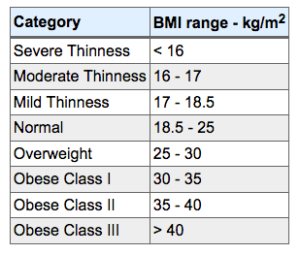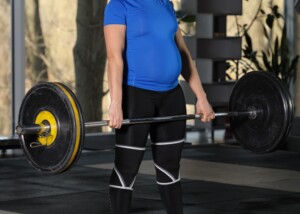
What is the weight after which a woman is just too big to expect getting pregnant? Is there a cutoff weight?
And if a morbidly obese woman does get pregnant, does this mean the pregnancy won’t have any obesity-related risks such as premature birth?
And how does the height of a woman factor into her weight when pregnancy is considered?
After all, 320 pounds on a 5’2” woman is not the same as 320 pounds on a 6’ woman.
“While there is no absolute number, maintaining a healthy weight both before and during pregnancy are critical,” says Daniel Kort, MD, Practice Director of Neway Fertility, one of NYC’s leading fertility centers specializing in customized and affordable natural fertility treatments.
There is no cutoff weight — no magic number for any height range.
Doctors never say, for instance, “Women over 330 pounds should not try to get pregnant,” or, “Women over 280 pounds will have a very high risk of pregnancy related complications.”
Precise cutoff weight or even body mass index (BMI) aside, it’s a hardcore fact that clinical obesity (being at least 20 percent over one’s ideal weight range relative to their height) brings with it increased risks of harm to the baby as well as to the mother – if she can even conceive at all due to her size.

Dr. Kort explains, “Women who are overweight have increased risks of infertility, diabetes in pregnancy [gestational diabetes], high blood pressure in pregnancy, pre-term birth, cesarean section and many other complications.
“If possible, I typically advise my patients who can wait to get pregnant to have a body mass index below 30 prior to attempting conception.”
Indeed, some women do try to lose weight before attempting to conceive, but the pounds never come off, or … only a small amount of fat is lost.
Before she knows it, several years have gone by – and she’s on the eve of her 30th, or worse, 35th, birthday – without any permanent weight loss.
Granted, there are plenty of women in their mid to late 30s, even early 40s, who have uneventful pregnancies and give birth to full-term, healthy babies.
But most of these women are not obese. Many have been regularly exercising for years, and did so throughout their pregnancy, and did not smoke.
If you’ve “tried everything” but have not been able to lose weight, then you have not tried everything.
When I was a personal trainer, my new obese clients would tell me that they had “tried everything” but could never drop the pounds.
Weight Loss Approaches that Are Guaranteed to Fail
• Starvation diets; diets that omit food groups; liquid diets
• Attempting to permanently eliminate favorite foods
• Holding onto a treadmill and thinking this will burn off the pounds
• Avoiding strength training, or if doing strength training, lifting light weights only and not pushing oneself hard
• Focusing mostly on sit-ups, crunches and upper body isolation exercises like dumbbell curls, dumbbell side lifts and triceps extensions
• Thinking housework counts as exercise.
Want to Get Pregnant but Feel too Fat to Conceive or Have a Healthy Pregnancy?
The following approaches will shear off the pounds.
• Portion control; inclusion (within reason) of favorite foods in diet
• Plant based diet; snacking mostly on fruits, nuts and fruit-vegetable smoothies
• Heavy and intense strength training focusing on the legs, back and chest
• Employing progressive resistance: always striving to lift heavier and heavier
• Cardio focus on high intensity interval training (HIIT)
Thin but Unhealthy
A thin woman can be unhealthy (due to poor diet, lack of exercise and/or smoking), and hence, a pregnancy would bring with it risks such as pre-term delivery.
When obesity is added to the equation of poor diet, lack of exercise and/or smoking, it just makes things worse. Drinking during pregnancy compounds things further.









































